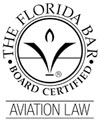Airline travel is truly one of the safest, most efficient, and fun forms of transportation. Even with the airport security screenings we must endure, no other form of public transportation can get us to our destination faster. However, you should be aware of a relatively rare but potentially hazardous event that has been known to occur on some flights. It is manifested by the appearance of what has been described as light smoke, vapor, or mist, and an odor in the passenger cabin. It is sometimes quickly dissipated, and sometimes it lasts a long time. Although there is a controversy over whether this can damage your health, a recent court decision has found that there is a causal connection between breathing this contaminated cabin air and specific health problems which then follow.
The problem arises when turbine oil leaks from a jet engine, or from an auxiliary power unit (APU), and is “pyrolized” by the very hot operating temperature. The oil contains a very small amount of an anti-wear compound, tricresyl phosphate (TCP), which is known to be toxic to humans. Pyrolizing is similar to vaporizing, and when the oil leak occurs in the part of the engine or APU that is used to provide the cabin air we breathe, the result may appear as a cloud of smoke, or vapor, or mist which contains TCP. This occurrence is often referred to as a “fume event.”
Those who have reported fume events also report the immediate onset of symptoms which include coughing, a burning throat, sore eyes, and headache. Sometimes all the symptoms never resolve, and a diagnosis of Reactive Airways Dysfunction Syndrome (RADS), a form of asthma, is common. RADS is a permanent condition that can be managed, but not cured. The coughing never goes away.
It is impossible to determine how many fume events actually have occurred on airline flights. The Federal Aviation Administration (FAA) maintains a database of Service Difficulty Reports (SDR’s), which are maintenance incidents self-reported by the airlines and other aircraft operators. However, the data is considered to be incomplete, even by the FAA. By some estimates, as much as 90% of reportable maintenance incidents are not reported. A search of the SDR database for the period January 1, 2008 through June 30, 2011 shows 149 reported events of smoke in the cabin resulting from engine or APU oil-related issues.
If you are traveling on an airline flight and experience a fume event, you should consider asking a flight attendant for supplemental breathing oxygen, especially if the toxic vapors do not dissipate quickly. Make a formal report of the event to the airline, and seek medical attention as soon as practical.
Originally posted at The Legal Examiner by Jerry H. Trachtman

 December 7, 2011 in
December 7, 2011 in 


